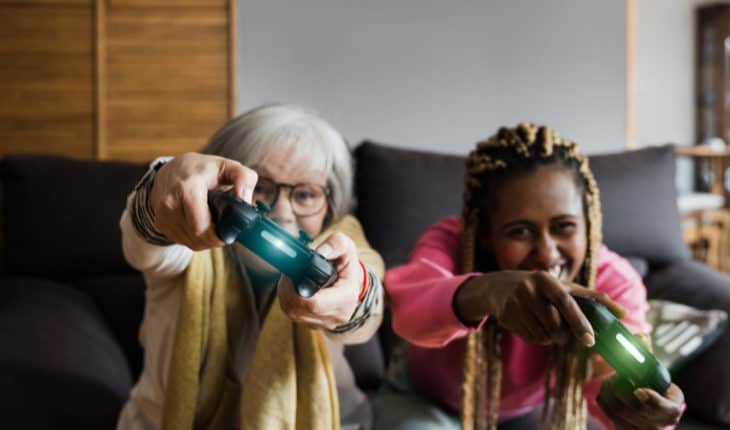Despite Generation Z’s reputation for being self-interested, more than three quarters (77%) of young adults would be ready to help support the lonely and vulnerable, reveals research by the befriending network Companiions.
Fewer than one in ten (9%) of those aged 18 to 24 said they would not consider organising support for someone with restricted mobility.
There is a strong gender divide when it comes to caring, with four out of five women (81%) saying they would consider organising support for a lonely person, compared to two thirds of men (67%).
Nearly four out of five (77%) people in Britain say they’ve become more aware of others’ loneliness since the COVID-19 pandemic began, and just over two thirds of adults (69%) are now more conscious of those who require support with everyday tasks.
The nationwide opinion poll of more than 2,000 British adults was conducted by YouGov and commissioned by the befriending network Companiions.
Companiions connects people who need help or friendship with trusted, insured, verified companions. Organisers can arrange visits for themselves or others through a secure, cashless app.
Lisa Robinson, CEO of befriending network Companiions, said: “Many of us have struggled over the last year, but one of the pandemic’s more positive legacies is that many people have become more compassionate and caring about others.
“It’s easy to forget that as we return to normal life, some of our friends and family may still be feeling isolated or lonely, whether through age, injury, sickness or life-changing events like becoming new parents.
“That’s why Companiions is on a post-lockdown mission to end loneliness by bringing easy-to-arrange, trusted, convenient companionship to every community in the UK.
“If you know someone who will still be lonely or unable to cope with everyday tasks when life returns to normal, wherever you live, you can organise a little bit of help or companionship securely and affordably via Companiions.”
The poll, supported by the Campaign to End Loneliness and Age UK Surrey, also reveals that more than two thirds of people (69%) feel they’ve become more aware of the needs of those that require support with everyday tasks than they were before the pandemic.
Loneliness expert Julie Barnett, Professor of Health Psychology at the University of Bath, said: “It is very encouraging to see that across all age groups and all areas of the country, people are now more aware of the loneliness of others. A key challenge now is to identify ways of turning awareness into appropriate action.”
Robin Hewings, Director of Campaigns, Policy and Research at the Campaign To End Loneliness, said: “Loneliness can affect us very deeply, so the challenge as we emerge from restrictions is that we do not leave people behind who may still be feeling lonely. That is a job for all of us.”
- Gut microbiome could delay onset of type 1 diabetes - 3rd April 2025
- The da Vinci 5 Robot Is Set To Transform Bariatric Care: - 31st March 2025
- Beyond money: the hidden drivers fuelling child food insecurity - 31st March 2025






